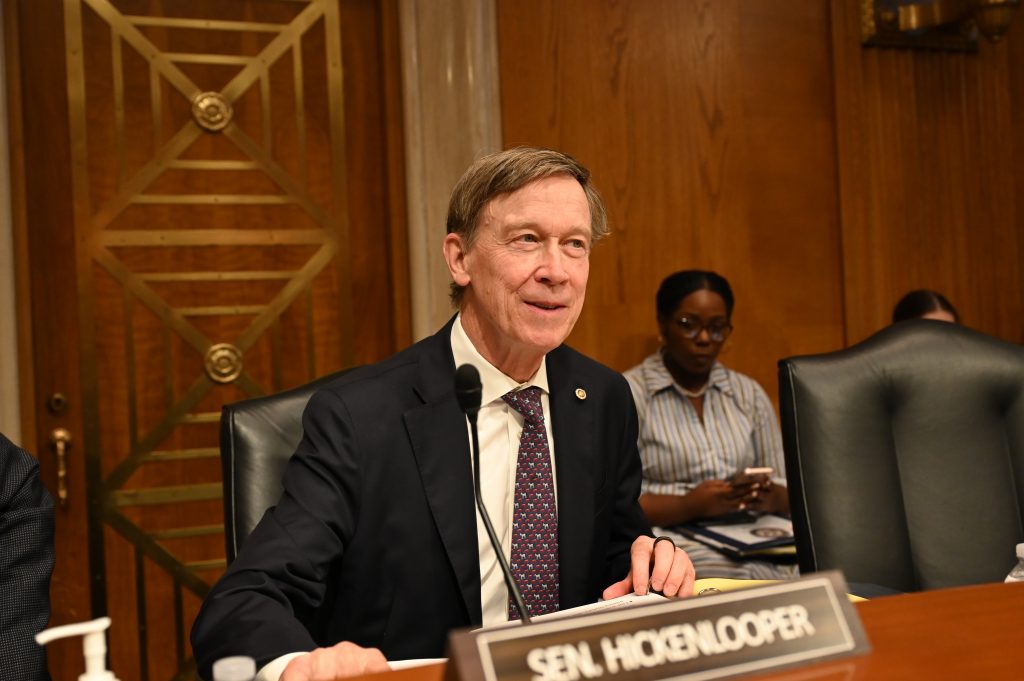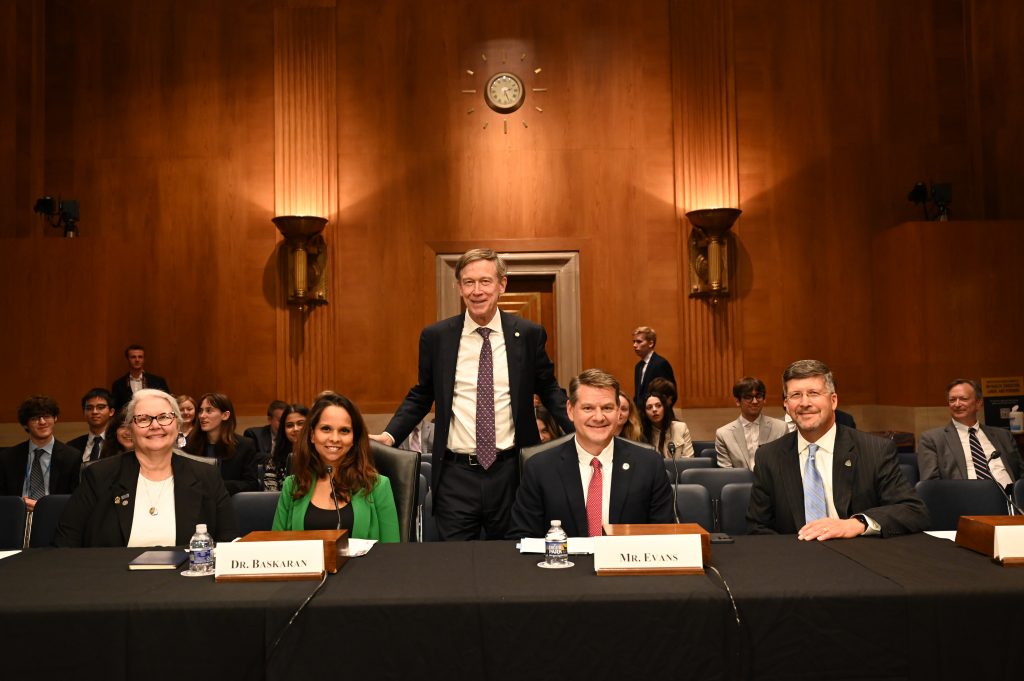Chair Hickenlooper: “To reach full energy independence, we’re going to need to build faster and to build smarter”
WASHINGTON – Today, U.S. Senator John Hickenlooper chaired a hearing of the Senate Health, Education, Labor and Pension Committee’s Subcommittee on Employment and Workplace Safety to explore strategies to urgently expand a diverse critical minerals workforce as the U.S. builds toward energy independence.
“Globally, we don’t have nearly enough of some of these critical minerals. But even for the minerals we do have – processing facilities are controlled by a relatively small number of countries, and not all of them are allied with our values,” Hickenlooper said. “It’s estimated that the critical minerals workforce will need to double over the next five years just to meet the needs we now project. But instead of the workforce growing, what we’ve seen in the last couple of years is a decline.”

Hickenlooper was joined by Ranking Member Mike Braun; Dr. Gracelin Baskaran, Director of The Project on Critical Minerals Security at the Center for Strategic and International Studies; Bill Zisch, Head of Mining Engineering Endowed Chair at the Colorado School of Mines; Dr. Barbara Arnold, Chair of Mining Engineering at Pennsylvania State University; and Jon Evans, President and CEO of Lithium Americas.

For a full video of Hickenlooper’s opening remarks, click HERE.
Full text of Hickenlooper’s opening remarks below:
“Last month, this subcommittee convened a hearing about the importance of health and safety in the overall mining industry.
“And our witnesses talked about America’s mining history, and practices we can adopt to enhance the safety of our workers today and going into the future.
“Today, we’re going to dig deeper into the future and talk about how to build the critical minerals workforce that our country is going to depend on for decades to come, I think it’s fair to say.
“Right now, America is in the middle of a Great Transition to a clean economy. But to reach full energy independence, we’re going to need to build faster and to build smarter.
“To power the transition, we’re going to need critical minerals, as we do the transition, and we’re going to need a lot of them.
“According to the International Energy Agency, mineral demand could double by 2030 and quadruple by 2040. Those are sobering statistics to say the least.
“Globally, we don’t have nearly enough of some of these minerals. But even for the minerals we do have – processing facilities are controlled by a relatively small number of countries, not all of them are allied with our values. And even if they were all our friends, we end up with bottlenecks in supply and the resulting geopolitical competition.
“As mineral demand rises, I think we’re going to see that vulnerability increase as foreign actors try to insert themselves into our supply chain and manipulate prices for their own benefit. I think China has made it clear that they are aggressive in this type of role, especially in terms of processing minerals that would be crucial for our national and for our energy security.
“As a couple of examples, China dominates 70% of rare earth element production and 90% of the processing. These minerals are crucial for wind turbines, for electric vehicles, missile systems, I could go on. It’s a long list, as you all know.
“To meet our clean energy goals and reduce our dependence on China, we need to increase domestic production and processing of critical minerals and strengthen our alliances with international partners.
“Preparing for this new wave of domestic minerals production is a little bit like a jigsaw puzzle. All of the right [pieces] have to get in the right place at the right time if this is really going to work.
“A key piece of the puzzle is recruiting, and training, and making sure you can retain a robust, talented, diverse, resilient workforce that can address critical minerals.
“It’s estimated that the critical minerals workforce will need to double over the next five years just to meet the needs we now project.
“But instead of the workforce growing, what we’ve seen in the last couple of years is a decline. And over a longer term we’ve seen a decrease of roughly 40% over the last 30 years. Many workers are retiring as that average age got older and older, some have moved into other industries.
“I think even more concerning, our talent pipelines are not in shape – they’re not fit – to be able to deliver the number of skilled workers we need and making sure the workers have the right skills.
“While China is graduating literally thousands of students from mining-related programs every year, the U.S. only has about 600 students over total enrollment right now.
“According to the Bureau of Labor Statistics, we’ll need at least 70,000 more craftsmen to build out these worksites.
“We’ll also need surveying and mapping technicians to make sure we can find the mineral deposits.
“We’re going to need upskilling and reskilling of our workforce to meet the diverse demands that are going to be required, especially for all these workforce slots. And a lot of this has got to happen in rural communities.
“There are certainly some bright lights. In our state of Colorado, the Colorado School of Mines is a leader in how you go about training engineers, chemical processors, and geologists. As a recovering geologist myself I’m sensitive to the challenge involved in that educating process.
“Unions like the United Steel Workers and International Union of Operating Engineers are offering apprenticeship and other training opportunities to train not just engineers but construction workers and heavy equipment operators, equipment servicers.
“This is all a great start, but we need to build and expand these programs. And we need to learn from and work with our international partners, like Australia and Canada, that have maintained their energy in this regard over these last few decades when we have maybe backed off. In many ways they are ahead of the game in training this next generation critical mineral workforce.
“So, it’s time to get building. Today we get to hear from a panel of experts as we begin to craft a blueprint to expand the critical minerals workforce.
“I want to thank my co-chair, Senator Braun, and his staff for working with us to host this hearing.”
###
